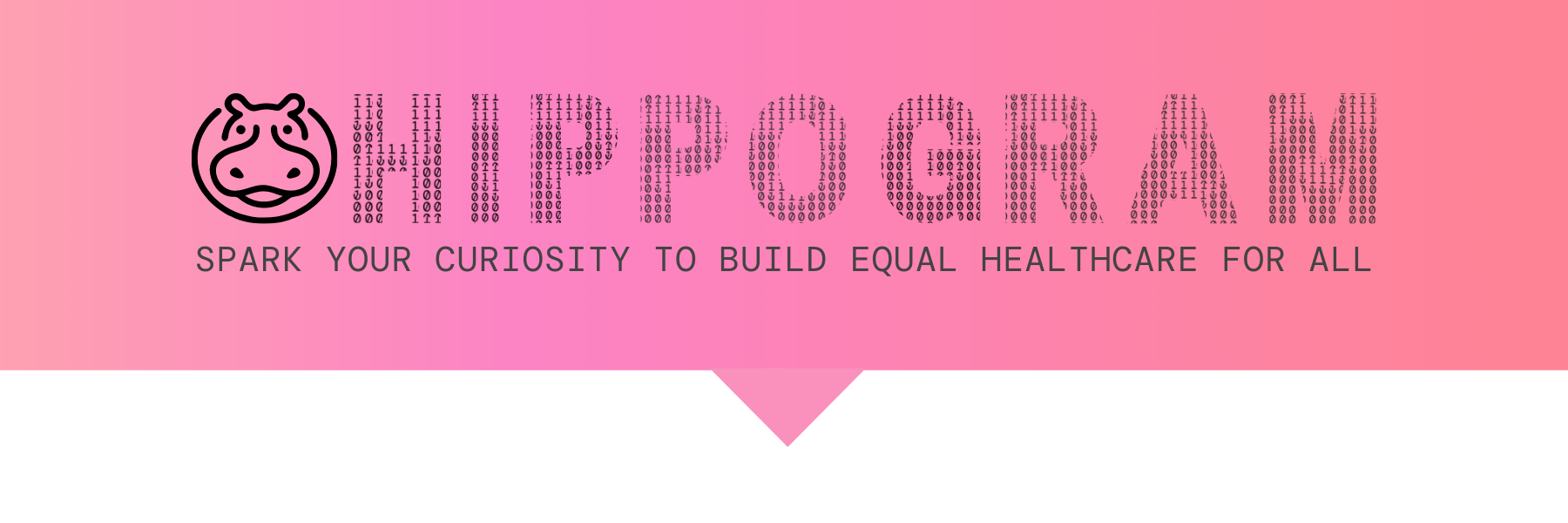Data as a common good; open AI vs. closed AI; breaking "Eroom's law" -- 🦛 💌 Hippogram #1

You are about to read our newsletter for health and tech professionals -
the bi-weekly Hippogram.
I'm Bart de Witte, and I've been inside the health technology industry for more than 20 years as a social entrepreneur. In that time, I've witnessed the evolution of technologies that are changing the face of healthcare, business models and culture in unexpected ways.
In the newsletter, I share my knowledge and insights about building a more equitable and sustainable global digital health. Sharing knowledge is also what my Hippo AI Foundation, named after Hippocrates, focuses on and it is an essential part of a modern Hippocratic oath. Know-How will increasingly result from the data we produce, so it's crucial to share it in our digital health systems.
Was this newsletter forwarded to you? You can sign up here for the whole Hippo experience.
I'm gonna be honest with you...
Coming from a software and technology background, I witnessed 50 years of democratisation of technology, which enabled more and more people to access technology. Continuous innovation based on Moore’s law, which states that computer power doubles every two years at the same cost, has contributed to these achievements.
From a technological perspective, incredible progress is made in increasing access to life-changing technology: Today, low-cost phones like the African Mara Phone are available even in the most rural areas of our planet, providing access to online education, digital banking and participation in the global economy. Someone living in Nigeria that uses this smartphone now has access to more information than President Clinton did 15 years ago. Isn’t that great?
But somehow, this development differs in healthcare. Have you heard about ‘Eroom’s Law’? It’s like Moore’s Law but in reverse. Concerning healthcare, a study from Sanford Bernstein describes that costs of new drugs in the US have risen exponentially for 60 years, while performance didn’t do the same. And despite all technological progress, access to healthcare across the globe has not followed that same path.
Something we could all witness during the last 22 months: New findings from the World Health Organization show that the COVID-19 pandemic is expected to stop two decades of global progress towards universal health coverage. Also, it will push half a billion people into extreme poverty because they have to pay for health services out of pocket.
I could now go deep into why healthcare innovation is hard or why markets are falling, but when talking to humans, I realised that there is so much eagerness to break Eroom’s law. Many technologies can help, but I think artificial intelligence will be one of the key technologies to break inequalities in health. It will help to improve existing medical technology and personalised medicine and provide equitable access to the underserved and socially disadvantaged populations.
But what is needed for this process? Basically: data.
Hence, we have seen a rapidly increased interest in high quality and diverse data in healthcare. So while data is like the oxygen that fuels the fire of the digital economy, it can equally be the water that extinguishes the inequalities in health. It’s up to us to decide if we want data to be the fire or water that fuels health innovations.
And this is exactly the reason why I founded the non-profit HIPPO AI Foundation. We focus on building patient communities that lead to the development of data and AI commons. Commons are goods that belong to all of us. This means they are free to use. We protect these digital commons with our extended copyleft license that mandates open AI. If someone uses Hippo AI's datasets, they must open-source the AI models. I believe with this approach, we can truly break Eroom's law. Why? The tools to build the digital innovation of the future are democratised and therefore accessible for free to everyone.
Is your healthcare data a digital common good?
I have spoken to over 500 researchers, entrepreneurs, investors, Big Pharma and MedTech CEOs, and 1000s of physicians. During my keynotes and conversations, I argue that if we capitalise on healthcare data and do not provide an alternative, data accumulation will follow capital concentration. Economically, this will lead to information asymmetries used to create artificial scarcity. This is a process that leads to inequality by design. Everyone supporting the system of data monetisation has to admit that they are guilty of building a future that is designed as part of the group designs for inequality.
During the last two decades in the software industry, I witnessed that R&D efficiencies can be created through collaboration based on open-source licenses. Open-Source developments have accelerated soft- and hardware innovation and standardisation while lowering costs and increasing access to the building blocks one needs to develop digital solutions. Similarly, open-source data and AI (data and AI commons) in healthcare can help us to accelerate the development of life-saving solutions, which are accessible to all of us.
Last november, I participated in a panel during the Munich Digital Health Summit. One of my co-panellist was Cailin Hardell, the founder of a startup called Segmed. Although I greatly appreciate her work, I opposed the founder's value proposition of her company, calling data something that benefits the healthcare system and creates passive revenue streams for health providers.
During the discussion, I discovered that we both work on the same goal: increasing the access to large data cohorts for machine learning. The difference is that we, the Hippo AI Foundation, publish them as free and open data commons (open-source) and enforce open AI. It’s a discussion we had 20 years ago.
But data monetisation in healthcare is a questionable idea. We all agree that access to data and AI is transformative and can help to save human life. If we do not democratise AI in healthcare, and build a system that is based on the principles of openness and solidarity, we will indirectly cement these existing inequalities in health.
Open AI vs. Closed AI: What's the difference and what will win?
During the AI Summit in Hamburg beginning of December 2021, I participated in a panel moderated by Olaf Groth, PhD, a professor at the Faculty at Hult International Business School and Haas School of Business at UC Berkeley. I strongly disagreed with one of the panellists, Mark Anderson, the founder and CEO of an AI startup called pattern computers. It was a Deja Vu, as it reminded me about the old battle of closed versus open-source software.
Some of my arguments pro open-source AI (AI commons) in healthcare:
- Open-source AI in healthcare allows peer-reviewing and scientific replication, leading to increased trust within the physician communities. Closed AI subverts the scientific process by preventing researchers from fully inspecting the intervention they are trying to study.
- Open-source AI leads to faster standardisation (open standards), removing the barriers to global collaboration
- Open-source AI facilitates prosocial behaviour and aligns with ethical norms among AI developers to attract talent.
- Open-source AI helps to fight the bias in healthcare solutions
- Open-source AI leads to fair competition. Closed AI has the risk to lead to monopolisation.
The panel discussion showed again how short term gains and risk mitigation of investors and companies are pushing us into a world that resembles that of the pre-enlightenment era, where open access to knowledge was not given.
But we are glad more voices within the policy-making landscape are evaluating how Europe could differentiate itself from China and the US by pushing for the open AI agenda.
This is why I am delighted that during my conversations with the team at DG Connect from the EU commissions that worked on the Data Governance Act for Europe, I noticed a solid will to strengthen data sharing initiatives across the EU and between sectors.
On November 30, 2021, the European Commission issued a press release indicating that the European Parliament and the Council of the EU reached a political agreement on the proposed EU Data Governance Act. This act establishes the possibility for organisations, like my Hippo AI Foundation, to engage in data altruism, and register as a ‘Data Altruism Organisation recognised in the EU’.
This Regulation aims at contributing to the emergence of pools of data made available based on data altruism that has a sufficient size to enable AI modelling, including across borders in the Union.
I have set my goal that the Hippo AI Foundation should be one of the first recognised data trusts for data altruism in healthcare to create open-source AI for the medical sector. This is one of the reasons why I am so much looking forward to 2022.
Bart’s Favorite Stories
Latest topics you need to know about
Yes, we said Open Source.
"We want open access to be a common standard", claim the three ruling parties in Germany and hence enshrine it in the German Coalition Agreement. Open data in administration and science are important in the next legislative period. Therefore a new research data law will be implemented to open up science and education for everyone. We love!
Behind the Scenes:
The "Public Money, Public Code'' campaign from the Free Software Foundation Europe called on politicians to make publicly funded software openly available under open source licences. The new coalition followed the idea and agreed to set Open Source Software as default for the public administration, Open Data in the administration, open access for science and open education resources.
Why it matters:
Free and Open Source Software is a public good that creates public value. The same counts for data produced by public institutes: Open access to publicly financed research allow everyone to benefit from advancements, not just a selected group of researchers and therefore accelerates innovation and cross-organisational collaboration. The free flow of information is essential for democracy to ensure public accountability and enable citizens to make informed decisions.
What Bart thinks:
Open Source AI is not part of any policy yet, but open-source AI is a mixture of open data and open-source code. This push for creating more digital commons is significant. In an era where we are confronted with some tech-feudalism, it strengthens citizens' rights and democracy, and it's a sign that data and digital sovereignty have priority – something that fits in the general European context. It also means that we could accelerate the adoption of open AI in healthcare as the use of open standards could be mandated in public tenders.
